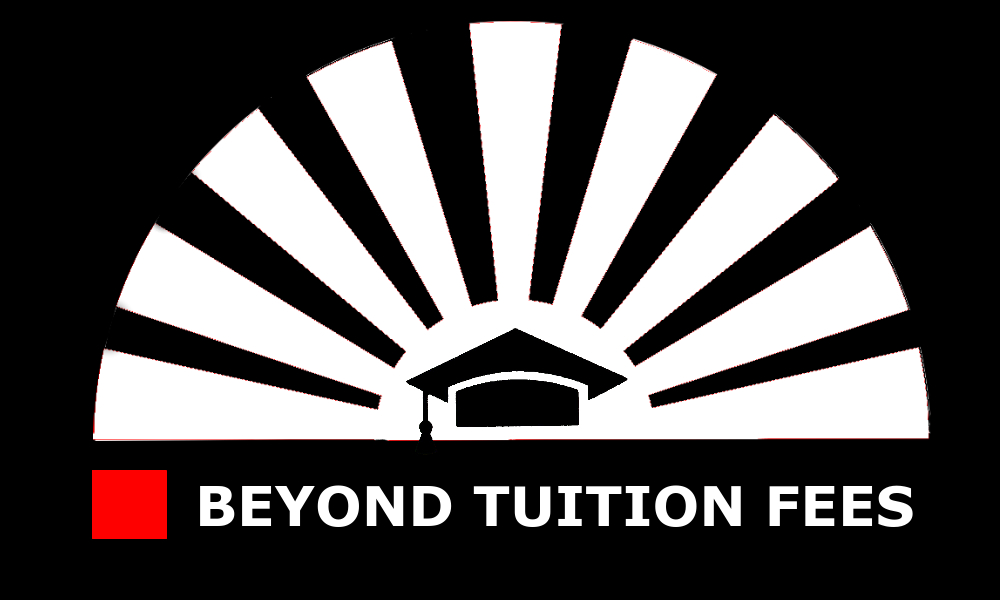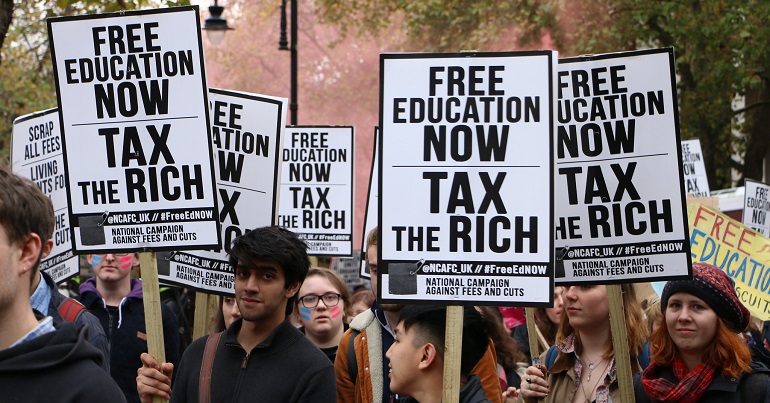WHAT ARE UNIVERSITY COMMUNITIES MADE OF? – BEYOND TUITION FEES #6

It is a time of extraordinary potential for change in UK Higher Education. Labour’s promise to end tuition fees has defied the critics and united many behind Corbyn’s political project. But what will the implications for universities be if this comes to pass? And what can we do to leverage this progress? In this series, the Norwich Radical and Bright Green are bringing together perspectives from across the sector to explore these questions.
At any demonstration concerning the anti-marketisation or -commodification of education and the university you will hear the phrase “We are not consumers – we are a community.” The motive behind this message is a good one, bearing positive and uplifting implications for the demonstrators. However, to those outside the demo space, be they apathetic students passing by or workers who may not have the freedom to stop and participate as readily as an academic might, calling ourselves a community means very little in a practical sense.
One of the main reasons for this crisis of meaning is that there is one other group besides student lefties who push the angle of universities as communities: university senior management. Referring to potential future students as the funding units that they are under current legislation just doesn’t have the same PR clout as promising that they will be part of a rich and vibrant community.
The university has not escaped the fundamental shift in our consumption-driven world from mass marketing to ‘relationship marketing.’ No longer can one posit a product as something universally desired; no longer is marketing that product simply a matter of shoving it down people’s throats through necessity or lack of alternative until they end up ‘willingly’ purchasing it. Instead marketing has become a question of the relationship with each individual consumer, the fulfilment of their ideal experience, to ensure their lifelong loyalty to your brand. For modern product providers, or service providers in the case of higher education, relationship marketing is king.
Our campuses are beset by the tension between community-focused groups wishing to change the university paradigm, and university management using the concept of community as what Stuart Hall called a “floating signifier,” one which has no meaningful relation to what it is concretely referring to. What the community is in reality does not matter to this latter group, so long as it is appealing enough that prospective students will commit to the brand and bank their £40k+ loan on it. Workers and non-workers who want to see the structure and functioning of higher education change require concrete leverage to cede demands from the current paradigm and ultimately break it, and build a new type of university where it once stood.
We are not arguing for the redundancy of the idea of community, but for a reinvigoration of it. A community is a relation of people in the same place, but this does not mean their interests are the same. The community aim is not a perfect harmony between participants but rather the construction of a better world in which the community can exist more justly, fairly and happily.
Ultimately, the way we can uncover this concrete community is through ‘workers’ inquiry,’ the production of information about the workplace through the direct participants in that workplace. In trying to study a workplace externally one runs into all kinds of issues relating to access and bias. The workers themselves do not face these problems. Their access is not limited but direct, and their perspective allows them to address the substantive issues of workplace dynamics and brush over the irrelevant.
The project of workers’ inquiry has been taken up by the journal ‘Notes From Below’, whose contributors produce bulletins about the truly existing dynamics of workplaces from supermarkets to game development studios, as well as those encountered by outsourced employees such as cleaners at universities.
If these projects for workplace inquiry are expanded beyond single institutions, we may reach a point where we can assemble a generalisable picture of the UK higher education system, which would allow a strategy not just for change but for leverage. With the immediate fight over pensions ending as UCU accept the most recent UUK deal, now is the time when worker, student and academic activists at universities can and must begin the process of linking disparate groups of campus workers. Through this we can create an easily operationalisable analysis of the tensions and challenges of this ever-changing work environment – the first step to building real change. If you work at a university or know someone who does, get involved. Now is the time to find out what our community is really made of.
If you’d be interested in contributing to this article series, contact either thenorwichradical@gmail.com or front-desk@project1-hvznj9e2s8.live-website.com with an article pitch.




Leave a Reply